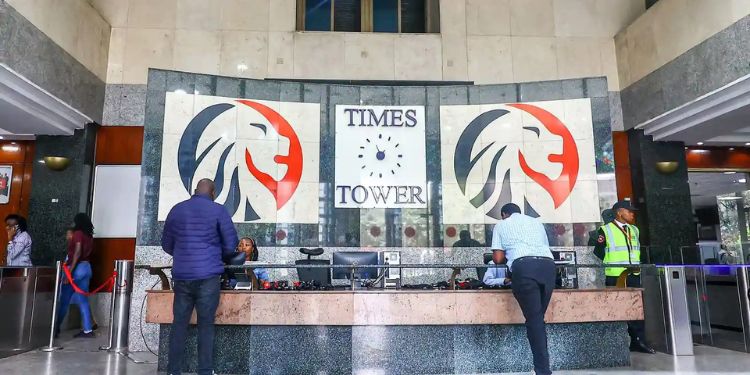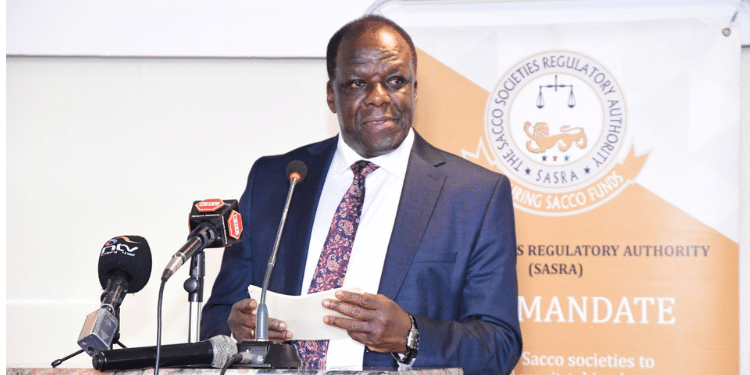The Kenya Revenue Authority (KRA) has published a draft of proposals expected to reshape how multinationals operating in Kenya—such as ChatGPT’s parent company OpenAI, Netflix, Google, Amazon, and Uber—are taxed for digital transactions and services consumed within the country. KRA, through the Income Tax (Significant Economic Presence Tax) Regulations, 2025, is proposing a sweeping overhaul of the country’s digital taxation framework.
These new regulations, issued under the authority of Section 12E (6) of the Income Tax Act, officially revoke and replace the Income Tax (Digital Service Tax) Regulations, 2020 (L.N. 207/2020).
The regulations are set to adopt the Significant Economic Presence (SEP) Tax, a new levy on non-resident companies earning income in Kenya through digital means, which came into effect in December 2024. The SEP Tax represents a significant broadening of the tax base, moving far beyond the limitations of the previous Digital Service Tax (DST) framework.
Under the proposed SEP Tax regime, the tax will apply to income derived or accrued in Kenya by a non-resident person, through the provision of services over the internet or any electronic network, including digital marketplaces.
A non-resident entity will be considered to have a “significant economic presence” in Kenya if the user of the digital service is located in the country—regardless of whether the business has a physical presence in the country. Once imposed, this tax will be final, meaning it will not be subject to further income tax calculations.
KRA lists specific taxable services
The proposed regulations significantly expand the list of taxable services, aiming to capture the diverse and evolving nature of digital business models. Under the proposed SEP Tax regulations, non-resident companies offering digital services to Kenyan users will be subject to taxation. The regulations list a wide range of taxable services.
These include downloadable digital content, such as mobile applications, e-books, and films, as well as subscription-based media, including news magazines and journals. Also covered are streaming, listening, viewing, or playing digital content, including TV shows, films, music, games, podcasts, and webcasts.
Software programmes, including drivers, web filters, and firewalls, are taxable, along with electronic data management services such as cloud computing, website hosting, file sharing, and data warehousing.
Also Read: Goods Worth Billions at Risk as KRA October 1 Deadline Nears
Search engines, automated helpdesk services, artificial intelligence services, and ticketing services for events, theaters, and restaurants are also included.
E-learning and online education platforms, including distance learning and web-based training, also fall under this scope.
Other services covered include digital marketplaces for transport hailing, online travel, accommodation bookings, and other goods or services; monetization of user data; online payment services, including digital wallets and money transfers; and transfer or exchange of digital assets such as cryptocurrencies.
Additionally, any other internet-based service that is not exempt through a registered digital marketplace is also subject to taxation under SEP Tax.
The regulations specify that a “service” means a digital service or any service delivered or subscribed to over the internet or an electronic network. A “digital asset” refers to any item of value that exists in a digital form and is owned or controlled electronically, which can be used, transferred, or traded.
To establish a significant economic presence, the regulations outline clear parameters for determining if a user is located in Kenya. A user is deemed to be in Kenya if any of the following are present:
- The user accesses the digital interface through devices from a terminal located in Kenya.
- Payment for the services is made using a credit or debit facility provided by a financial institution or company in Kenya.
- The services are acquired using an Internet Protocol (IP) address registered in Kenya or an international mobile phone country code assigned to Kenya.
- The user has a business, residential, or billing address in Kenya.
Tax calculation and remittance
The regulations propose a specific methodology for computing the tax:
- Deemed Taxable Profit: The taxable profit of a person liable to pay the SEP Tax shall be deemed to be ten per cent of the gross turnover.
- Tax Rate: The rate of tax shall be thirty per cent of the deemed taxable profit.
Gross turnover is defined as the income of a non-resident person derived from or accrued in Kenya through digital business activities. For direct service provision, this is the payment received as consideration. In the case of a digital marketplace, gross turnover refers to the commission or fee paid to the digital marketplace provider for using the platform. Gross turnover shall explicitly not include the value-added tax charged for the service.
Also Read: KRA Clarifies Taxing Bank and M-Pesa Deposits
A person liable to pay SEPT, or their appointed tax representative, must submit a return in the prescribed form and remit the tax due on or before the twentieth day of the month following the end of the month in which the service was offered.
Registration requirements
A non-resident person without a Permanent Establishment (PE) in Kenya who provides services to a user in Kenya is required to register under a simplified tax registration framework.
This application must include detailed information, such as the applicant’s name and trading name, the postal, registered, and electronic addresses of the business, the contact person responsible for tax matters, the contact person’s phone number, the applicant’s websites/URL, and the certificate of incorporation.
Upon registration, the Commissioner issues a Personal Identification Number (PIN) for filing and payment purposes. If an eligible person fails to register within the stipulated timelines, the Commissioner may register the person.
Alternatively, a non-resident person without a PE who elects not to register under the simplified framework must appoint a tax representative in accordance with Section 15A of the Tax Procedures Act.
Non-compliance with the regulations will subject the person to the penalties and interest prescribed under the Tax Procedures Act.
Notably, the Commissioner is granted extensive powers to ensure tax collection, including the authority to hold third parties liable.
Exemptions and transitions
The SEP Tax specifically exempts non-resident persons who offer services through a PE in Kenya. It also exempts certain income chargeable under sections 9(2) or 10 of the Act. A specific exemption is noted for a non-resident person providing digital services to an airline in which the government of Kenya holds at least forty-five percent shareholding.
For transition, any person already registered under the outgoing Income Tax (Digital Service Tax) Regulations, 2020, will be deemed registered under the new SEP Tax regulations.
Follow our WhatsApp Channel and X Account for real-time news updates.























































![Senator Allan Chesang And Chanelle Kittony Wed In A Colourful Ceremony [Photos] Trans Nzoia Senator Allan Chesang With Channelle Kittony/Oscar Sudi]( https://thekenyatimescdn-ese7d3e7ghdnbfa9.z01.azurefd.net/prodimages/uploads/2025/11/Trans-Nzoia-Senator-Allan-Chesang-with-Channelle-KittonyOscar-Sudi-360x180.png)




















